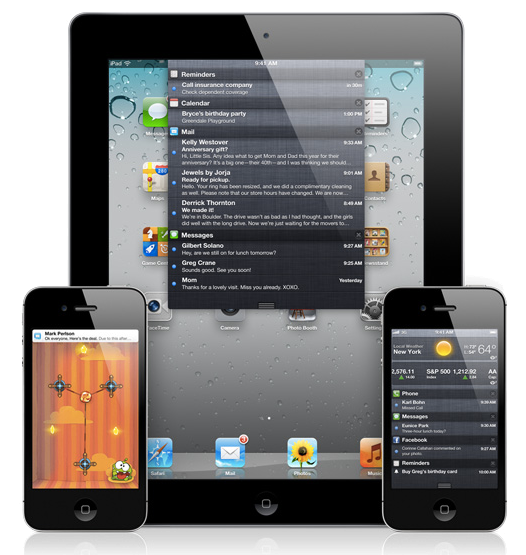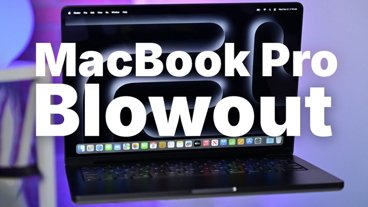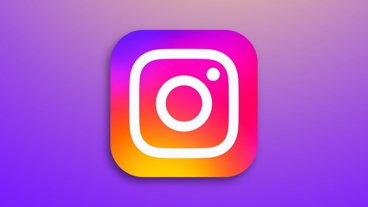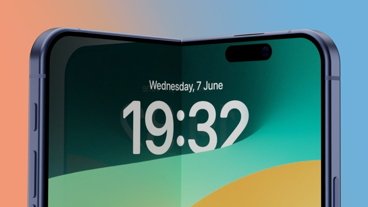The iPhone 5 and iPad mini helped Apple largely close the gap between it and Samsung in terms of connected devices last quarter, according to a new report from IDC.
Industry tracking firm International Data Corporation (IDC) released on Tuesday its new Smart Connected Device Tracker report, finding that worldwide shipments of smart connected devices grew 29.1 percent year over year in 2012. The report found the total market for smart connected devices to be over one billion units shipped, with a value of $576.9 billion.
Apple and Samsung continued their struggle for supremacy in this market, but the release of two popular new products helped Apple close the gap. Samsung still leads with 21.2 percent of device share, but the iPad mini and iPhone 5 helped bring Apple to a 20.3 percent unit shipment share.
Apple still dominates the revenue picture, holding 30.7 percent of revenues in the fourth quarter. Samsung pulled in 20.4 percent of fourth quarter revenues. IDC estimates the full fourth quarter connected device market — including desktops, notebooks, tablets, and smartphones — at 378 million devices shipped and more than $168 billion.
IDC's report contains more good news for Apple, which maintains the lead in the tablet market. IDC expects the tablet segment, which Apple's iPad currently dominates, to surpass both desktop and notebook PCs over the next two years. Tablets, according to IDC, should pass desktop PCs in 2013 as that market continues to struggle. Portable PCs — an area where Apple is already a major player — will fall behind tablets in shipments in 2014, according to IDC.
By 2017, IDC sees the worldwide smart connected device market hitting 2.2 billion units shipped, with revenues around $814.3 billion. Much of this growth will be in developing markets such as India, where consumer spending begins with mobile phones and moves to tablets now, with PCs less popular as time goes on.
 Kevin Bostic
Kevin Bostic








 Malcolm Owen
Malcolm Owen
 Amber Neely
Amber Neely
 William Gallagher
William Gallagher



 Oliver Haslam
Oliver Haslam
 Thomas Sibilly
Thomas Sibilly


-m.jpg)






17 Comments
I don't think tablets are so popular simply because they are tablets. I think it's because they, and the apps on them, are much simpler, and more fun, to use than traditional computers for most people. I don't think OS X and it's descendants will go away, or be entirely merged into an iOS universe. And, I don't think adding touch capabilities to OS X will magically transform it, or even that it's a good idea to do so. What I do think we might see are iOS, or iOS-like, devices in traditional notebook and even desktop form-factors, with keyboards and pointing devices, and larger screens. And these may very likely not have touch screens, but just offer a simple, enjoyable experience that people don't even think of as computing... like tablets.
And, no, I do not think that describes a Chromebook.
Good for you Apple. I guess you do know best how to run your own company!
If I am not wrong... How could people buy an Android phone and an Android Tablet? Android phones is OK. But, how can people buy that junk Android Tablet?
Apple's devices are the best class if you consider Connected devices. I dont think Sammy will make a good progress on this.
If I am not wrong... How could people buy an Android phone and an Android Tablet? Android phones is OK. But, how can people buy that junk Android Tablet?
Apple's devices are the best class if you consider Connected devices. I dont think Sammy will make a good progress on this.
Believe it or not, there are people who think all tablets are iPads and that there's no difference between an iPad and an android tablet except the price. When a parent goes to purchase a "iPad" for their child they sometimes cheap out and get the $79 android tablet because it looks the same, and is cheaper. They don't know what the difference is. I'm not saying this is everyone out there, but there are more than a few uneducated customers.
Believe it or not, there are people who think all tablets are iPads and that there's no difference between an iPad and an android tablet except the price. When a parent goes to purchase a "iPad" for their child they sometimes cheap out and get the $79 android tablet because it looks the same, and is cheaper. They don't know what the difference is. I'm not saying this is everyone out there, but there are more than a few uneducated customers.
Believe it or not, I think the same applies for phones.